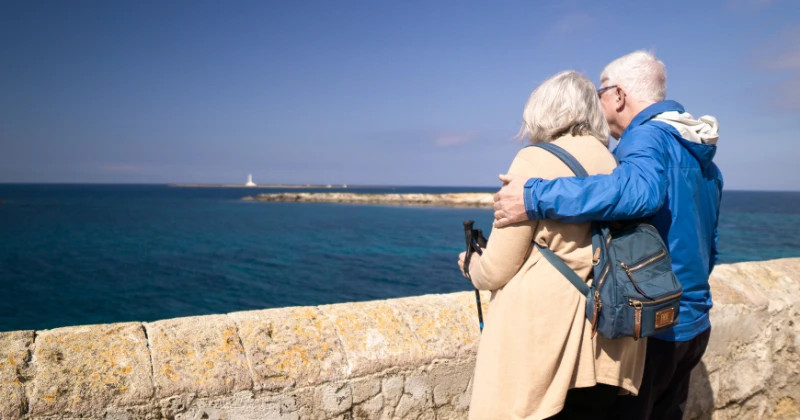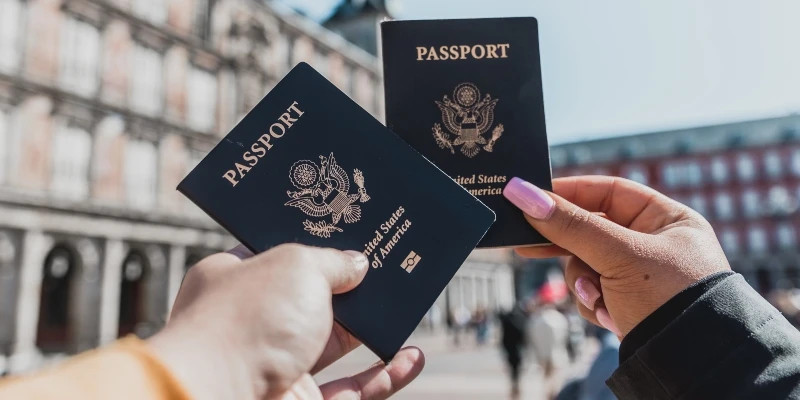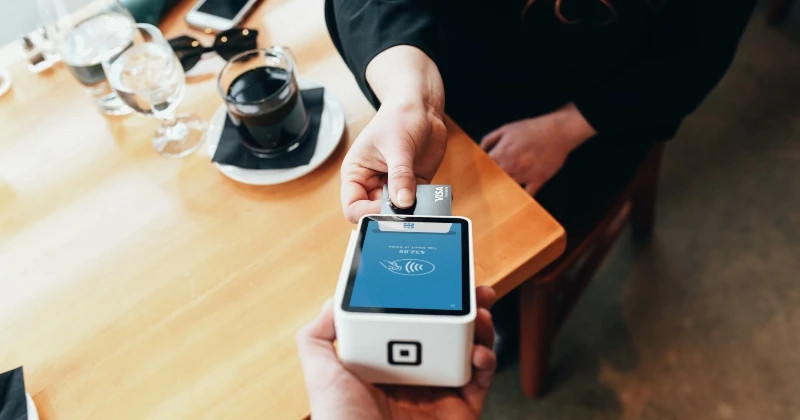Planning a trip to Europe? What To Know When Traveling To Europe is essential for a smooth and enjoyable experience. SIXT.VN offers expert travel advice and services to help you navigate the nuances of European travel, ensuring your adventure is unforgettable for all the right reasons. From visa requirements to local customs, discover key insights. Let SIXT.VN be your trusted partner in planning your European journey for ultimate travel planning, pre-trip preparation, and cultural awareness.
1. Currency Considerations: Beyond the Euro
While the Euro is widely used, not all European countries have adopted it. Only 20 out of 51 European countries use the Euro as their national currency. Before your trip, check the specific currency used in each country you plan to visit. The European Union’s website (europa.eu) provides a reliable list of countries and their respective currencies.
2. Accommodation: Book in Advance, Especially in Summer
Securing accommodation during peak season (July and August) can be challenging. Europe experiences a surge in tourism during the summer months, making last-minute bookings difficult. Booking accommodations in advance ensures you have a comfortable and affordable place to stay. For worry-free travels, consider booking with SIXT.VN, where your accommodations are included, giving you more time to enjoy your trip.
3. Offline City Maps: Save on Data Costs
Data roaming charges can quickly add up. Downloading offline city maps using apps like Google Maps can save you significant money and ensure you can navigate effectively even without an internet connection. Alternatively, consider picking up a traditional paper map from a local Tourist Information center.
 Offline City Map
Offline City Map
4. Hotels Without Elevators: Pack Light
Many older European hotels, especially those in historic buildings, may not have elevators. Be prepared to carry your luggage up several flights of stairs. Packing light and using a rucksack or hiking backpack can make your travels much easier, particularly in cities with cobblestone streets like Venice.
5. Power Adapters: UK vs. Rest of Europe
The UK uses a different power adapter than the rest of Europe. If you’re traveling from the UK, bring a universal adapter to ensure you can charge your devices. Even if not traveling from the UK, it’s useful to have a universal adapter as some European plugs may have become slimmer over time.
 European Travel Adaptor
European Travel Adaptor
6. Embrace Late Dining: Adjust Your Meal Times
In many European countries, particularly Spain, Portugal, and Italy, dinner is typically eaten later than in other parts of the world. Restaurants often don’t open their kitchens until 7:30 PM or even 10 PM. Embrace the local culture and adjust your dining schedule to enjoy the evening atmosphere.
7. Siesta Time: Plan Around Mid-Day Closures
The “siesta,” a traditional afternoon nap, is common in Spain, Portugal, and Italy. Many shops and attractions may close during the hottest part of the afternoon. Take advantage of this time for a relaxing break or explore less crowded areas.
8. The Schengen Area: Understand Border Regulations
The Schengen Area includes 26 European countries that have abolished border controls between each other. This allows for easier travel within the area, but it’s essential to understand the visa requirements and duration of stay permitted for your nationality. Consult your home government’s travel guidelines for the most up-to-date information.
9. Visa Requirements: Check in Advance
Visa requirements vary depending on your nationality and the countries you plan to visit. Some countries may allow you to obtain a visa upon arrival, while others require you to apply well in advance. Research visa requirements early to avoid any issues before or during your trip.
10. Train Travel: Book Early for Best Prices
Traveling by train in Europe is often an efficient and scenic way to get around. Booking train tickets in advance can save you money. Alternatively, consider cheap flights, but book early to avoid price increases. According to research from Rail Europe, in 2023, booking train tickets at least three months in advance can reduce costs by up to 40%.
11. Multi-Country Sim Cards: Stay Connected Affordably
Using international roaming can be expensive. Consider purchasing a multi-country European sim card for affordable data and call rates. This can be a cost-effective alternative, especially if you have an unlocked phone.
 Travel Passports
Travel Passports
12. Eat Outside Tourist Hotspots: Authentic Cuisine at Better Prices
Restaurants in central tourist districts often charge higher prices for less authentic cuisine. Venture into residential neighborhoods to find reasonably priced and more authentic meals. Use translation apps like Google Translate to navigate menus in local languages.
13. Language Etiquette: Learn Basic Phrases
While many Europeans speak English, it’s polite to learn a few basic phrases in the local language. Simple greetings like “please,” “thank you,” and “hello” can go a long way in showing respect for the local culture.
14. Public Holidays and Festivals: Check the Calendar
Check the local calendar for public holidays and festivals before your trip. This will help you avoid unexpected closures and allow you to plan your itinerary accordingly. Attending a local festival can be a highlight of your trip.
15. Small Change: Essential for Public Conveniences
Carry small change with you for public toilets, which often require payment. Small change can also be useful for unexpected expenses.
16. Shower Operation: Ask for Instructions
Showers in Europe can vary widely, and some may be confusing to operate. Don’t hesitate to ask for instructions from your hotel or B&B host before you undress to avoid any surprises.
 European Payment
European Payment
17. Pay in Local Currency: Avoid Hidden Fees
When paying with a card, always choose to pay in the local currency to avoid hidden exchange rates and fees. This can save you a significant amount of money over the course of your trip.
18. Public Transport Tickets: Validate Your Ticket
Public transport systems vary from place to place. In many European cities, you need to validate your ticket before boarding. Check the local procedures when purchasing your ticket to avoid fines.
19. Travel Insurance: Protect Your Trip
Travel insurance is essential to protect against unexpected events such as illness, injury, theft, or trip cancellations. Ensure you have comprehensive coverage that includes medical expenses, lost luggage, and trip interruptions.
20. Pack Appropriately: Consider the Weather and Activities
Europe has diverse climates. Research the weather conditions for the time of year you’re traveling and pack accordingly. Also, consider the activities you plan to engage in and pack appropriate clothing and gear.
21. Learn About Local Customs: Show Respect
Familiarize yourself with local customs and etiquette to show respect for the culture. This includes understanding appropriate dress codes, tipping practices, and social norms.
22. Stay Aware of Your Surroundings: Prevent Theft
Pickpocketing and petty theft can be common in tourist areas. Stay aware of your surroundings, keep your valuables secure, and avoid displaying expensive items.
23. Emergency Contacts: Keep a List Handy
Keep a list of emergency contacts, including your embassy or consulate, local emergency services, and your insurance provider. Store these contacts in a safe place and share them with a trusted contact back home.
24. Transportation Options: Choose Wisely
Europe offers various transportation options, including flights, trains, buses, and rental cars. Consider the cost, convenience, and environmental impact when choosing your mode of transportation. Train travel is known as an environmentally friendly way to travel long distances.
25. Accommodation Types: Explore Your Options
Europe offers a range of accommodation options, including hotels, hostels, apartments, and guesthouses. Consider your budget, preferences, and travel style when choosing where to stay.
26. Food and Drink: Embrace Local Cuisine
European cuisine is diverse and delicious. Embrace the opportunity to try local dishes and drinks. Be adventurous and explore regional specialties.
27. Activities and Attractions: Plan Ahead
Europe has a wealth of activities and attractions to offer, from historical sites and museums to natural wonders and cultural events. Plan ahead and book tickets in advance to avoid long lines and ensure you can see everything you want to see.
28. Health and Safety: Take Precautions
Consult your doctor before traveling to Europe to ensure you have any necessary vaccinations and medications. Be aware of potential health risks and take precautions to protect yourself from illness.
29. Currency Exchange: Get the Best Rates
Exchange currency before you travel or upon arrival at the airport or a reputable exchange bureau. Avoid exchanging currency at hotels or tourist traps, as they often offer unfavorable rates.
30. Communication: Stay in Touch
Stay in touch with family and friends back home. Consider purchasing a local sim card or using Wi-Fi to make calls and send messages.
31. European Festivals: Plan a Trip Around Them
Consider planning your trip around one of Europe’s many world-renowned festivals. Oktoberfest in Germany, La Tomatina in Spain, and the Venice Carnival in Italy are just a few examples of the vibrant cultural events that take place throughout the year.
32. Explore Hidden Gems: Venture Off the Beaten Path
While the major tourist attractions are worth seeing, don’t be afraid to venture off the beaten path and explore hidden gems. You may discover charming villages, scenic landscapes, and authentic cultural experiences that you wouldn’t find in the guidebooks.
33. Budgeting Tips: Plan Your Finances Wisely
Europe can be an expensive destination, so it’s essential to budget your finances wisely. Track your spending, look for free activities, and take advantage of discounts and deals.
34. Solo Travel: Enjoy the Freedom
Solo travel in Europe can be an enriching experience. You’ll have the freedom to explore at your own pace, meet new people, and discover yourself.
35. Family Travel: Plan Activities for All Ages
If you’re traveling to Europe with family, plan activities that appeal to all ages. This could include visiting amusement parks, museums, and historical sites. Make sure to book accommodations that are suitable for families.
36. Sustainable Travel: Reduce Your Impact
Practice sustainable travel by reducing your environmental impact. This could include using public transport, staying in eco-friendly accommodations, and supporting local businesses.
37. Learn About Local History: Gain a Deeper Understanding
Learning about the local history can add depth and meaning to your trip. Visit historical sites, museums, and monuments to gain a deeper understanding of the region’s past.
38. Try Local Wines and Beers: Sample Regional Beverages
Europe is known for its excellent wines and beers. Sample regional beverages and learn about the local winemaking and brewing traditions.
39. Visit Local Markets: Experience Local Life
Visit local markets to experience the vibrant atmosphere and sample local produce. You’ll find fresh fruits, vegetables, cheeses, meats, and other regional specialties.
40. Attend a Local Concert or Performance: Enjoy the Arts
Attend a local concert or performance to experience the arts scene. You’ll find a variety of music, dance, and theater performances to choose from.
41. Learn a Few Dance Moves: Join the Fun
Learning a few basic dance moves can enhance your experience at local festivals and celebrations. You’ll have more fun and feel more connected to the culture.
42. Respect Local Traditions: Be Mindful
Always be respectful of local traditions and customs. Avoid making loud noises, dressing inappropriately, or engaging in behavior that could be offensive.
43. Be Flexible: Embrace the Unexpected
Travel can be unpredictable. Be flexible and embrace the unexpected. You may encounter delays, cancellations, or unexpected surprises. Roll with the punches and make the most of every situation.
44. Take Lots of Photos: Capture the Memories
Take lots of photos to capture the memories of your trip. You’ll be able to relive your experiences and share them with friends and family.
45. Keep a Travel Journal: Record Your Thoughts
Keep a travel journal to record your thoughts, experiences, and observations. You’ll be able to look back on your trip and remember the details.
46. Stay Hydrated: Drink Plenty of Water
Stay hydrated by drinking plenty of water, especially when traveling in hot weather or engaging in physical activity.
47. Wear Comfortable Shoes: Do Lots of Walking
Wear comfortable shoes, as you’ll likely be doing a lot of walking. Choose shoes that provide good support and cushioning.
48. Pack a First-Aid Kit: Be Prepared
Pack a small first-aid kit with essential supplies such as bandages, antiseptic wipes, pain relievers, and allergy medication.
49. Download Helpful Apps: Translate and Navigate
Download helpful apps such as translation apps, maps, and transportation apps. These apps can make your travels easier and more enjoyable.
50. Be Open to New Experiences: Embrace the Adventure
Finally, be open to new experiences and embrace the adventure. Traveling to Europe can be a life-changing experience. Be willing to try new things, meet new people, and step outside your comfort zone.
What is the Best Way to Travel to Europe?
The best way to travel to Europe depends on your preferences, budget, and travel style. Options include direct flights, train travel, and boat travel. Direct flights are convenient for long distances, while train travel offers a scenic and environmentally friendly way to explore multiple countries. Traveling by boat is a good option for those who want to bring their own car.
According to a 2022 study by the European Travel Commission, train travel is increasingly popular among European travelers, with a 20% increase in train journeys compared to pre-pandemic levels.
How Can SIXT.VN Help You Plan Your European Adventure?
SIXT.VN offers a range of services to make your trip to Europe seamless and enjoyable. We provide expert travel advice, airport transfer services, hotel booking assistance, tour bookings, and flight booking support. Let SIXT.VN take the stress out of planning your European adventure.
SIXT.VN Services for Your European Trip:
| Service | Description | Benefits |
|---|---|---|
| Travel Consultation | Personalized itinerary planning based on your preferences and interests | Tailored travel experience, optimized routes, and expert recommendations |
| Airport Transfer | Convenient and reliable transportation from the airport to your hotel | Hassle-free arrival, comfortable and safe journey, and professional service |
| Hotel Booking | Wide selection of hotels to suit your budget and location preferences | Best price guarantee, convenient booking, and verified reviews |
| Tour Bookings | Curated selection of tours and activities in various European cities | Skip-the-line access, expert guides, and immersive cultural experiences |
| Flight Booking | Assistance with finding the best flight deals and convenient travel schedules | Cost-effective travel, flexible options, and easy booking process |
Don’t let the challenges of planning a European trip overwhelm you. With SIXT.VN, you can relax and enjoy the journey. Contact us today to start planning your dream European vacation!
Address: 260 Cau Giay, Hanoi, Vietnam
Hotline/Whatsapp: +84 986 244 358
Website: SIXT.VN
FAQ: Your Questions About Traveling to Europe Answered
1. What is the best time to travel to Europe?
The best time to travel to Europe is during the shoulder seasons (April-May and September-October) for pleasant weather and fewer crowds. Summer (June-August) is peak season with warmer weather but higher prices and more tourists.
2. How much does it cost to travel to Europe?
The cost of traveling to Europe varies depending on your travel style, destinations, and time of year. Budget travelers can expect to spend around $50-$100 per day, while mid-range travelers may spend $100-$250 per day.
3. What are the most popular destinations in Europe?
Popular destinations in Europe include Paris, Rome, London, Barcelona, Amsterdam, and the Greek Islands.
4. What is the best way to get around Europe?
The best way to get around Europe depends on your itinerary and budget. Options include trains, buses, flights, and rental cars.
5. What languages are spoken in Europe?
Europe is a multilingual continent. Major languages include English, Spanish, French, German, Italian, and Russian.
6. What currency is used in Europe?
The Euro (€) is used in 20 of the 51 European countries. Other currencies include the British Pound (£), Swiss Franc (CHF), and Polish Zloty (PLN).
7. Do I need a visa to travel to Europe?
Visa requirements vary depending on your nationality. Check the visa requirements for the countries you plan to visit before your trip.
8. What should I pack for a trip to Europe?
Pack comfortable shoes, versatile clothing, a universal adapter, a first-aid kit, and any necessary medications.
9. Is it safe to travel to Europe?
Europe is generally a safe destination. However, be aware of your surroundings and take precautions against pickpocketing and petty theft.
10. How can SIXT.VN help me plan my trip to Europe?
SIXT.VN offers expert travel advice, airport transfer services, hotel booking assistance, tour bookings, and flight booking support to make your trip to Europe seamless and enjoyable.



